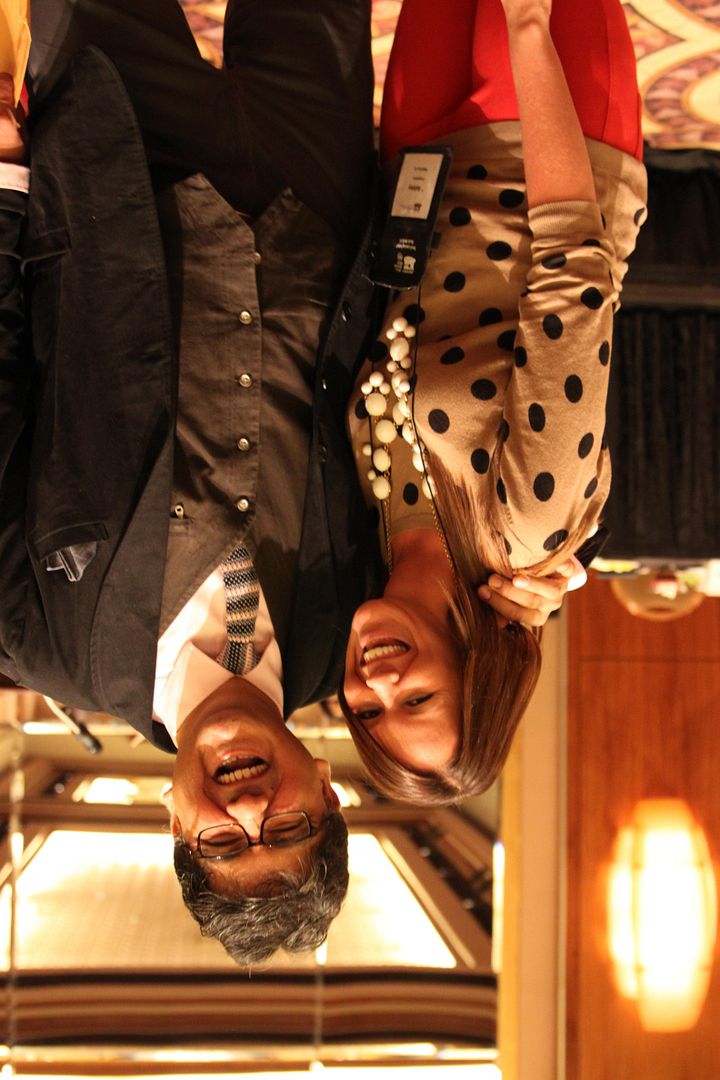Me (nervously inching my way closer, attempting to not look like a psychopath stalker with my Canon Rebel and goofy excited smile): "Hi Sherman, I know this sounds cheesy, but you are like totally my literary idol."
(kicking myself for how stupid I sounded)
Sherman (poised, confident, equally goofy): "Wow, that's really cool, and you are like really pretty."
1, 2, 3...click, click, click.
This pretty much encompasses the ten seconds I had with Sherman Alexie, award-winning author and producer of movies like Smoke Signals, and books that include one of my all-time favorites, The Absolutely True Diary of a Part-Time Indian. So when the NCTE National Convention announced that Sherman would join the lineup of luncheon speakers that included Lemony Snicket, Nicholas Sparks, and David Shannon, I knew I had to see him speak.
I attribute much of what became my teaching practice to Sherman Alexie. It was the summer before I started my first teaching job, and I remember sitting on the living room floor surrounded by old college notebooks, literary anthologies, and the course textbook, not having a clue how to start building a yearlong curriculum that was challenging, engaging, and edgy for my students. I could imagine this American Literature course in my head --- students writing from the depths of their souls, taking part in rich, intellectual discussions about life, philosophy, and humanity, and discovering newfound knowledge through complex reading assignments. I, like most new, idealistic teachers, had Freedom Writers in my head --- I just didn't know the first thing about how to get there.
And then I read True Diary. A semi-autobiographical account of Sherman's life growing up on a poverty-stricken reservation in Spokane, Washington. As a freshman in high school, Sherman (or Junior in the book) decides that in order to make something of himself, he would need to leave his reservation school and attend the larger, middle class white school in Spokane. This decision sent Sherman on a quest to discover his true self, caught between two worlds that didn't accept him. Viewed as a traitor on his reservation, and an outcast at the white school where he says that he "and the mascot are the only two Indians in the school," Sherman learns the power that community expectations have on our identity, and seeks to write his own story instead of accepting the one already written for him.
This book led me down a path that helped ignite a curriculum centered on a questions, talk, and relevant, authentic purpose. I used essential questions like "How do we overcome stereotypes in order to be ourselves?", and "What are the benefits and costs of advancement in our society?" to shape my unit instruction, and blended classics like Thoreau's, Walden, with 'Into the Wild,' and Sherman Alexie with The Breakfast Club.
The wonderful thing about Sherman Alexie's writing is that it is real. I know this now because I've seen him speak. He is the same person in his writing that he is when he is speaking to a room full of English teachers. He mixes humor with insight, and will have you tearing up from laughter and tearing up from sadness within one story. I guess it was fitting because, really, "laughing and crying are pretty much the same thing."
Sherman talked about the power of stories, and that the key to writing a good story is being aware of the world around you. That sometimes, we just need to 'shut up and pay attention,' and look for the small details that tell bigger stories. He was humble, but passionate, and thanked the teachers for bringing his story to life for the students in the trenches. "My books," he said, "are simply words on a page, but it's you that breathes life into these texts for your students."
This was my experience with Sherman Alexie. I laughed, I cried, and I felt motivated to be proud, to be aware, and to be real.

